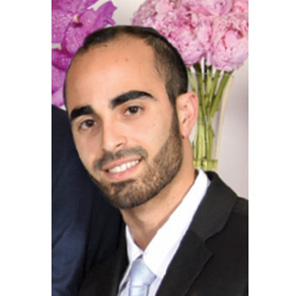
As a murderer, hunter, an idolater and a promiscuous individual, Eisav was the kind of person who lived for this world, taking advantage in all the wrong ways. But even from such a personality there is much to learn…
The Midrash (Bereishit Rabba 65:16) quotes Rabban Shimon ben Gamliel, who exclaimed: All my days I would serve my father and I did not serve him [even] one percent of how Eisav served his father, for when I would serve my father I would serve him while wearing clothing that was dirtied, but when I would go out in the street I would wear clean clothing, while Eisav—when he would serve his father he would only serve him while wearing kingly clothing, for he [Eisav] said, “The honor of my father deserves that he should be served only while the attendee is wearing kingly clothing.” We see from this Midrash the tremendous level of kibbud av Eisav demonstrated, a respect so significant that a Tanna even attested that he couldn’t even reach a percent of the level of kibbud av that Eisav attained!
The question, however, is, while indeed it is true that Eisav would go above and beyond and wear a very special set of clothing to serve his father, his father—Yitzchak— was blind! Yitzchak definitely didn’t see this special garb Eisav wore and very likely he didn’t even know of it! So then why would Eisav even go out of his way to wear this special clothing, and why is a Tanna praising him so highly for it if Yitzchak couldn’t seemingly even appreciate such an act?!
Many of us may live a multi-personality life. What that means is that in one setting we may behave one way, while in another setting we may behave a different way. With some people we act one way, with others we act a different way. For example, a common phenomenon is that with family we might get a little “overly familiar” and cross certain boundaries, while with strangers we might heighten our level of respect. To one person we might display interest and acceptance, while when that person is not around we might speak differently about them behind their back. In the workplace we might display professionalism and extra concern and care, while in our religious affairs we might be a bit lax. These are just a few examples that indicate human nature and are common and normal.
Eisav, on the other hand, is perhaps being praised for not living a multi-personality life, at least when it came to honoring his father. He wasn’t the kind of person who would act with his father with the coined term “what you don’t know won’t hurt you.” Yes, his father may have not had any idea whatsoever about Eisav’s fresh gear, but Eisav was a man who had respect for his father inside and out. To him, respect for one’s father wasn’t an external act, it was a deep-rooted appreciation and honor for his father. He felt such a respect for his father that dressing up was a natural result of such. His respect was authentic, inside and out. For Eisav, it didn’t matter whether his father knew about it; it mattered that he would do it anyway, out of real respect. When it came to kibbud av, he wasn’t one person in one setting, and another person in another setting. Rabban Shimon ben Gamliel, on the other hand, as great as he was, recognized that he was living a double personality life when it came to kibbud av: When he served his father it was with dirty clothing, but when he went in the streets it was with clean clothing. Even Rabban Shimon ben Gamliel on some level did not reach the genuine respect for one’s father, a respect that is sincere and foolproof. Thus, when he saw this quality in Eisav he extolled him for it.
While this is certainly a tremendous lesson when it comes to honoring our parents, perhaps the core of this lesson learned from Eisav is genuinity when it comes to the honor we give to any person, not just one’s father: to question our level and gestures of respect for another person—whether it’s just an external act, or whether it’s a respect that comes from an authentic place in our hearts.
Binyamin Benji is a graduate of Yeshivas Rabbeinu Yitzchak Elchanan, and Wurzweiler School of Social Work. He currently learns in Eretz Yisrael, and is the author of the Sephardic Congregation of Paramus’ weekly Torah Talk. He can be reached at benjibenji26@gmail.com.











